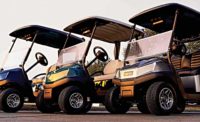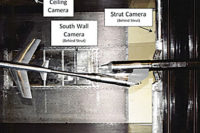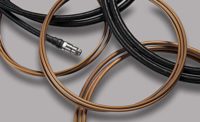Like many large cities, London is quickly adapting to the increased presence of electric vehicles (EV) on its streets. These vehicles are mostly operated by private citizens, but also by government workers and taxi companies.
The London Electric Vehicle Co. (LEVC) is the largest producer of EV taxis in the UK, having introduced its first prototype in the summer of 2017, before putting them into operation on London’s streets in January 2018. Called the LEVC TX, the vehicle is powered by innovative eCity technology, and capable of zero-emissions urban operation to fully comply with the needs of future sustainable cities.
Equally important, the TX maintains the same look as the Black Cab, for which the London company is so well known. Last summer, the LEVC rolled out its VN5 electric van, which has similar styling, but more cargo space and certain other modifications.
LEVC was originally known as Carbodies in 1919, and then changed its name to London Taxis International in 1989. Nearly 25 years later, in October 2012, the company stopped production and filed for bankruptcy. The Chinese automaker Geely then bought the company in February 2013, and reinstated it under the name The London Taxi Co. in September that year.
Development of the TX began several years ago, with a strong focus on efficient design and quality construction. To achieve the latter goal, LEVC engineers worked closely with Crane Electronics Ltd., located in nearby Hinkley, to improve the torque-testing accuracy of their fastening tools.
Initially, LEVC quality-control workers used transducers to collect data, before manually inputting it into a computer. Experts at Crane, however, recommended the workers switch to Crane’s Mobile Tool Torque Station (MTTS) trolleys so they can easily perform line-side testing and calibration of cordless and DC tools.
Each trolley features torque-measurement equipment for tools that produce 0.2 or more newton-meters of torque. This equipment includes a TorqueStar data collector connected to several joint kits, and stationary transducers and CheckStar Multi rotary torque transducers driven by a ruggedized tablet computer with built-in order management system software.
Also standard are durable wheels and a smart printer. The printer not only displays individual tool results. It also prints a data label, which is then applied to the tool for traceability. Vertical or horizontal transducer mounting is available, as are battery-powered and WrenchLoader-mounted trolley versions.
Since implementing the MTTS trolleys, LEVC has substantially improved its tool auditing process. The trolleys make it easier to record and collect tool data, while improving tool inspection and calibration, and providing complete tool traceability back to the tightening of each individual joint.
Printed labels enhance the visual identification of tools, and give workers the peace of mind that the tools are consistently delivering the level of torque required for high-quality assembly and performance. In addition, the trolleys reduce the time it takes LEVC to calibrate and certify its tools.
“Our challenge [was] going from a low- to high-volume vehicle manufacture,” notes Mick Pearson, an internal engineer at LEVC who’s responsible for calibration. “[Doing so] requires the use of high-accuracy DC tools and torque-testing equipment. The trollies provide an all-in-one testing and calibration solution.”
For more information on torque-measurement equipment, call 309-787-1263 or visit www.crane-electronics.com.





